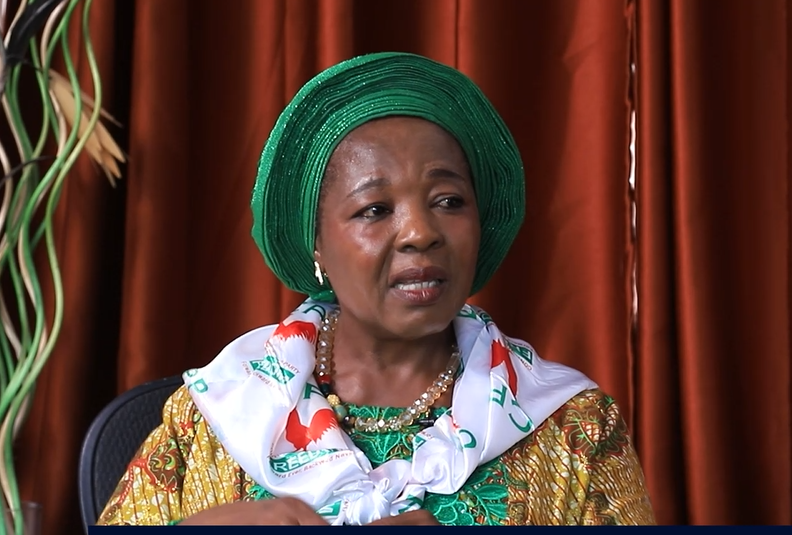Madam Frimpomaa Sarpong Kumankumah, the Presidential Candidate of the Convention People’s Party (CPP), has strongly refuted claims that she or her party has aligned with either of Ghana’s major political entities, the New Patriotic Party (NPP) or the National Democratic Congress (NDC). These allegations have arisen amidst a political climate that often sees smaller parties accused of colluding with the two dominant parties for strategic advantage. In a candid interview with Channel One TV on October 8, she expressed her commitment to the CPP’s independent ideology and vision, emphasizing the party’s role as a distinct alternative in Ghana’s political sphere.
During the interview, Madam Kumankumah addressed the rumors head-on, stating unequivocally that she supports neither of the major parties. She articulated her personal stance on the matter, humorously indicating that her interests lie primarily in self-reflection and personal enjoyment rather than political entanglements. “There’s an allegation that I’m in bed with NDC as well; NDC and NPP is Ghana. I’m in bed with myself,” she asserted, emphasizing her preference for solitude, reading, and music over partisan politics. This declaration is particularly significant in a context where political affiliations are often scrutinized, and leaders are evaluated based on their perceived loyalties.
Madam Kumankumah’s comments highlight the unique positioning of the CPP within Ghana’s political landscape. Historically, the CPP has been viewed as an alternative to the NPP and NDC, advocating for a more grassroots-focused approach to governance. Her firm denial of collaboration with the larger parties serves to reinforce the CPP’s identity as an independent political entity, differentiating its objectives and policies from those of its more powerful competitors. This independence is crucial as the CPP seeks to garner support from voters disenchanted with the two major parties, which are often criticized for their handling of national issues.
Moreover, her statement reflects a broader sentiment among certain voter demographics in Ghana, who are increasingly seeking alternatives to the traditional political dichotomy represented by the NPP and the NDC. By distancing herself and her party from both major parties, Madam Kumankumah is not only asserting the CPP’s relevance but also appealing to a segment of the electorate that desires new voices and fresh ideas within the political arena. This stance could potentially mobilize support among those frustrated with the status quo, especially as the political landscape becomes increasingly polarized.
The refusal to be associated with established parties also raises questions about the CPP’s strategies moving forward. In Ghana’s political environment, where party allegiance often determines voting behavior, Madam Kumankumah’s leadership may have to navigate the challenges of building a robust following while maintaining a clear and independent platform. Her focus on self-identity and personal pursuits may resonate with voters who value authenticity and integrity in leadership, yet she will need to balance these personal principles with actionable political strategies to effectively communicate the CPP’s vision.
In conclusion, Madam Frimpomaa Sarpong Kumankumah’s recent statements serve not only as a rejection of allegations concerning the CPP’s affiliations with the NPP and NDC but also as a reaffirmation of the party’s independent identity. By positioning herself away from Ghana’s traditional political rivals, she invites a critical discussion about the role of smaller parties in national discourse and the necessity for alternative political voices. As Ghana approaches future elections, her commitment to an independent political trajectory could be pivotal in defining both the CPP’s mission and its potential impact on the nation’s political conversation.














